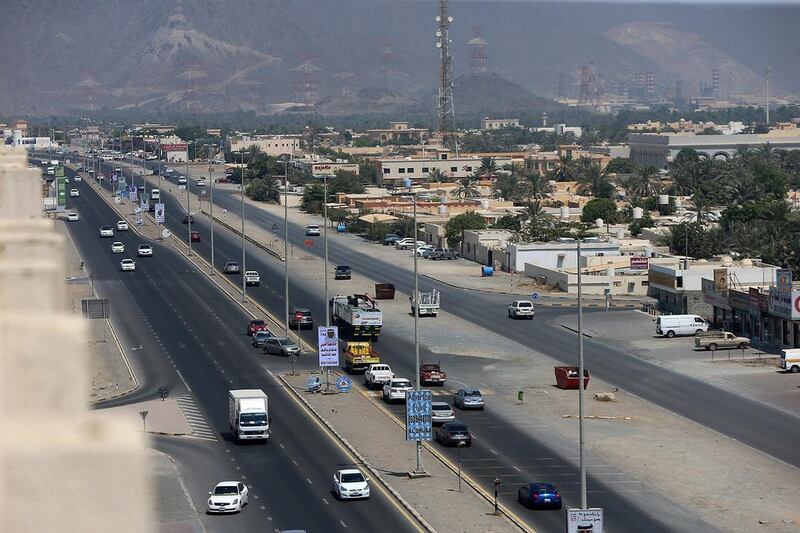ABU DHABI // A toll system for federal roads could help to keep traffic flowing smoothly and lead to safer driving, experts say.
A proposal to impose tolls on the 800 kilometre network, which connects the Northern Emirates to Dubai and Abu Dhabi, has been put forward by a traffic workshop.
Officials at a Federal Transport Authority sessions looked into the dependence on private cars, traffic congestion and its costs, and safety challenges posed by lorries.
No details were released on the toll system, its cost, its proposed scope or charges for motorists.
“It does cost money to implement and maintain state-of-the-art safety features on a road,” said Michael Dreznes, vice president of the International Road Federation, a group that promotes safer roads.
“The public needs to understand that the tolls on federal roads should be used to ensure the road users pay for the maintenance and improvements of these toll roads over time.”
Today’s technology allows for automated payments for toll road users booths.
Salik, which was introduced by Dubai Roads and Transport Authority in 2007, is a “free-flow tolling system”.
Tolls are collected electronically, allowing vehicles to move at more fuel efficient speeds, reduce air pollution and traffic noise, and improve safety.
“On a federal basis, toll collection makes sense from a perspective of raising funds to operate and maintain road facilities,” said Glenn Havinoviski, an associate vice president of transport systems at Iteris, which specialises in traffic management.
In December 2014, the FTA board reviewed a feasibility study on a lorry tolling system on federal roads.
“The application of lorry-based tolls in Germany, Austria and Switzerland addresses the specific damage to highways generated by trucks,” Mr Havinoviski said.
“The benefits are increased revenues to support maintenance and upgrade of the road network.”
Lorries would have to pay premium tolls because they cause more wear and tear to roads. A lorry do up to 100 times more damage than a car.
“If you have to use a world-class facility like the Emirates Road, you should be contributing towards it,” said Sonal Ahuja, regional director of PTV Group, which provides software and consultancy for traffic and transport planning.
“The goods lorries cause maximum damage to the pavement. You can have hundreds of cars going up and down the road, and the damage is not as much as the heavy goods vehicles.”
Secondary routes must be provided for motorists who want to avoid the tolls, Mr Dreznes said.
“These routes could become more congested and therefore more dangerous, which could be considered a negative effect of a toll road,” he said.
“But these alternate routes must be provided.”
rruiz@thenational.ae






